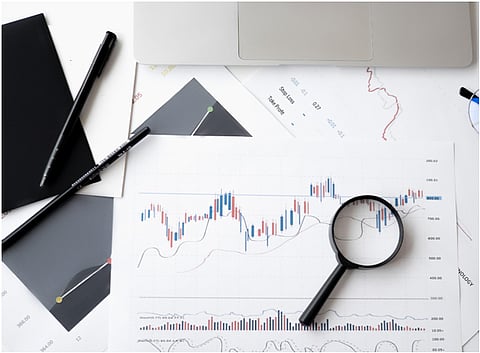
- News
- Women
- Magazine
- IndustryIndustry
- InsightsInsights
- Success Stories
- PublishPublish
- ContactContact
- Media KitMedia Kit

The fear and greed index (FCI) is one of the important tools for measuring the fear and greedy emotions of investors on a daily, monthly or annual basis. Too much greed can raise the stock prices, while excessive fear can do the opposite, or in market jingo, can make a stock bullish or bearish, respectively. When used correctly, FCI can be a powerful tool for making mindful investments. In this article, we'll discuss how you can use the fear and greed index to make the most out of your investments.
The Fear and Greed Index is a method formulated by CNNMoney to determine two critical emotions that decide how much potential investors are ready to spend on specific stocks. Further, this index can be measured on a yearly, monthly or daily basis. Basically, the FCI is used to know whether or not the stock market is priced fairly.
Most marketers use the fear and greed index as a tool to gauge the stock market. The value of the fear and greed index allows investors to make sound decisions at the time of investing in the stocks. If the fear is too high, it can cut down the stock prices and the opposite is applicable when greed grows excessively. Although it is a great tool for decision making during trading, some skeptics dismiss this claim by saying that it promotes market timing instead of a buy-and-hold strategy. If needed, you can also check out the market sentiment today to get an understanding of how this works.
There are seven factors coined out by CNN on the basis of which it scores investor sentiment on a scale of 0 to 100. It goes from excessive fear to excessive greed. These 7 factors are mentioned below :
● Stock Price Breadth: This factor determines how far the share volume is lowered or advanced on the NIFTY (National Stock Exchange FIFTY).
● Market Momentum: This factor helps in determining how far is the S&P 500 Index below or above its average (125 days).
● Junk Bond Demand: This is a measure to determine if the investors are willing to adopt higher-risk strategies.
● Safe Haven Demand: It is a measure to learn whether the investors are turning to stocks from the safety of bonds.
● Stock Price Strength: Stock price strength helps in determining the number of stocks touching 52-week highs in comparison to those at 52-week lows.
● Market Volatility: For this segment, CNN employs VIX, the Chicago Board Options Exchange's Volatility Index, focusing on a fifty-day moving average. In India, market volatility is based on VIX India.
● Put and Call Options: When the put options surpass the call options, it signifies fear. On the other hand, when put options lag behind the call options, then it signifies greed. Further, put options allow you to sell stocks at a price you've agreed on or before the decided date, while call options work in the same manner but only for buying stocks.
When used correctly, the fear and greed index can be your guide for making smart investments. To help you use it precisely, we have listed some do's and don'ts that you should follow:
● Use it for determining the right time for entering the market.
● Look for the companies that are undervalued
● Make an entry point when the index points towards fear.
● Make investment when the index points towards greed.
● Use FGI for determining short term gains
● Drop the stock in a hurry before making a good profit.
According to experts, greed is like the feeling of love. It has the ability to influence your decisions in a way that pressurizes you to keep your rational judgement aside and hence, results in change. Typically, there is no proper explanation for the feeling of greed of investors.
There is no doubt that fear and greed are the two primary factors that deeply impact the human thought process, especially when it comes to money and finances. This is the main reason why the Fear and Greed Index is introduced in this field.
The Fear and Greed Index or FGI is a simple tool for calculating the possibility of the stock market being overvalued or undervalued. It provides investors with an in-depth insight into the fact that greed and fear are two strong emotions that can greatly impact stock prices. By giving an overview of the stock prices, it can save potential investors from great losses. However, to make the most out of it, one needs to use it properly. Make sure to follow the do's and don'ts discussed in this article while using FGI for yourself.
Follow us on Google News
